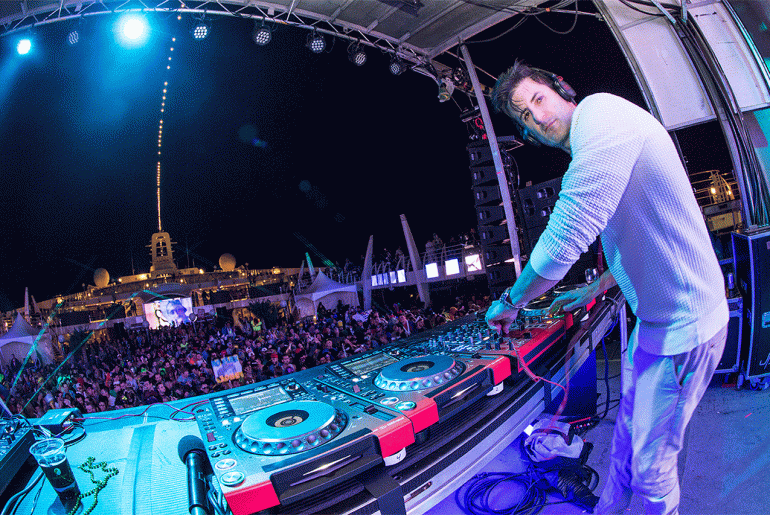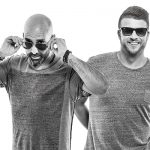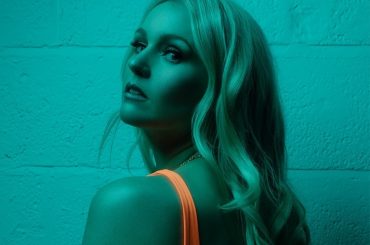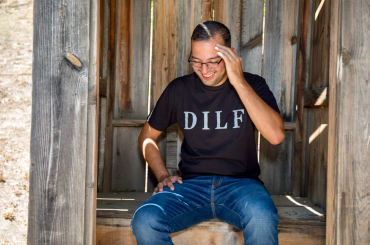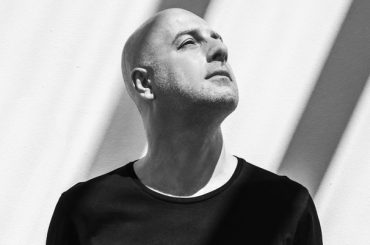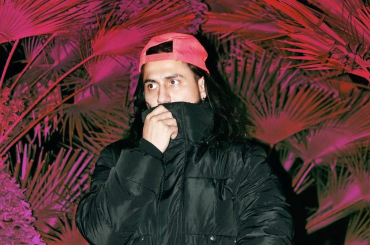DJ Times: How did that happen?
Richards: My dad and my brother were in the music business, so those guys were always trying to get me a job at a label, which I really didn’t want to do. My dad somehow figured out a way to tell the people in the industry about me and what I was doing, but it didn’t come through that. Rick Rubin was coming to all my events, and he would come and watch me DJ. I couldn’t believe that was fucking Rick Rubin! I mean, I love the Beastie Boys. Licensed To Ill, that was like my album, and I couldn’t believe this dude’s here! We just went to lunch one time and he just kind of threw it out there: “Hey if you ever know anybody that would want to publicize some groups in this genre of music, I’d love to get more involved.” I just said I’ll do it, and so he hired me.
DJ Times: HARD came into existence in 2007. What was going on personally then?
Richards: Well, my brother passed away and I really didn’t know what I was going to do with my life. As it progressed in 2005 and 2006, no one was buying records and no one was buying electronic music, so I was pretty much ready to throw in the towel. I was just pretty low on life in general. I was like, “What am I going to do?” I told my wife maybe we’ll move to Portland and just chill out. Then one of my friends said, “You’re crazy. You’re Gary Richards, you fucking know everybody, you’re not going to move to Charlotte, N.C., and fucking do nothing, like… come on!”
DJ Times: What made you get back into the scene?
Richards: So, my dad was always pushing me. “You’re the rave king,! You’ve got to do a show.” So it was like… alright, I’ll go back to what I originally did in the early ’90s and produce a show and DJ. I started going out and checking out what was happening, and I realized that there was all this great music like Crystal Castles and Boys Noize coming out and no one was booking it; everybody was booking the big trance shit. So I thought I’ll try and do an event. The first one was, like, Justice, Peaches, [Steve] Aoki, 2 Live Crew, and stuff like that and I thought, “OK, I’ll throw a Hail Mary and see what happens.”
DJ Times: So what happened?
Richards: The show was originally supposed to cost a hundred-grand and ended up costing about four-hundred and something. I lost all this money and once again had trouble producing it, but I realized I had something very special. I realized I tapped into something that was cool. I knew what I was doing. I really felt like for the first time I had something that I could make my own and do something different.
DJ Times: At the parties you were going to in the early 1990s, the DJ might have been tucked away in the background. Now people book massive festivals with the star power of a DJ being the selling point of the ticket. What are your thoughts on that shift?
Richards: I think it’s great. I was one of those DJs then and I’m one of those DJs now, so I remember. No one used to watch what I was doing at a warehouse party back in the day. If you train-wrecked or fucked up, then people would pay attention. Other than that, they knew you were there, but it was just more low-key. I think it’s cool that DJs are front and center right now and that they get so much attention. They put on a show and do stuff. I love it. I think it’s brought way more attention to the scene, way more attention to the whole thing.
DJ Times: What did you think back in the day?
Richards: What I used to think when I was young was that it was underground and that it was our thing. That’s why I did Rave America, in part to rebel against how big it was getting. I realized that was a selfish approach. Why should only some people get to hear this music? It should be for everybody.
DJ Times: In 2012, you really stepped it up when Live Nation bought HARD. How did that change the company?
Richards: When I started HARD in 2007, the biggest thing was… just to do one of these events costs millions and millions of dollars. I’m just one guy with a wife and kids, so if there’s one issue or problem at the show I could be homeless. I just can’t risk that, so I always just wanted a backer or a partner. I could have never imagined it being Live Nation; they’re like the largest concert promoter in the world. The deal’s been fantastic and it’s enabled me to take more risks and to put more back into the show.
DJ Times: How so?
Richards: I can make the production better and just make things better that I would skimp on when it was my own money, and I’m able to have a bigger team, too. When I would do the event myself, we would engineer the stage one time. Now I think Live Nation engineers the stage three times. There’s just things that they do as a big corporation that are great when you’re dealing with hundreds of thousands of people, and any extra help and money lets us spend more to make the show safer and better for the neighbors, police department, and things like that. It’s just better all around.
DJ Times: And does that free up you to focus more effort on the creative part of it?
Richards: Oh yeah, like a 1,000-percent. It’s helped me with that, but it’s also helped me make Destructo music and DJ more. Before I sold it to Live Nation, literally 80-percent of my time was dealing with City Hall, the fire department, the police department, security. I’m not mad about that; it’s just not my best skill. I could do that, but I think I’m better at dealing with other artists and the lineup and the studio.
DJ Times: You’ve been DJing as Destructo in three different decades, but is seems recently you’ve had resurgence of sorts as a DJ. Do you think that explosion is a result of HARD and the events?
Richards: When I started HARD, I said I wanted to DJ as well as produce the show, so it kind of gave me a platform to start DJing, and getting a gig. You might not think it, but I feel like I’m kind of a modest person. I mean, I’m looking at the first HARD [poster] now and I’m third from the bottom out of 70 acts. I would play in between the groups when nobody wanted to play. I think when it really started to happen for me was when Live Nation bought HARD because then I was able to actually go in a studio making tunes.
DJ Times: That didn’t happen before?
Richards: All the years before, I would make tunes with other artists I had managed on my record label, so I wasn’t really the artist. They would always kind of tell me that I was the label or the manager and that I did “the biz” while they I did the music. This thing has really freed me up to just get creative and do what I want to do, and I think the combination of having the time to actually go to the studio and make original music that’s exactly what I want to create and then having time to actually get out there and DJ other events besides HARD has really helped it to take off. I think there’s lots of people that don’t even know that Destructo does HARD. People see me at some festival and say, “You’re my new favorite DJ! I’ve never even heard of you!” They’ve got my West Coast EP and they love the rap and the house and they don’t even know about HARD at all, so it’s kind of cool.
Continue reading


